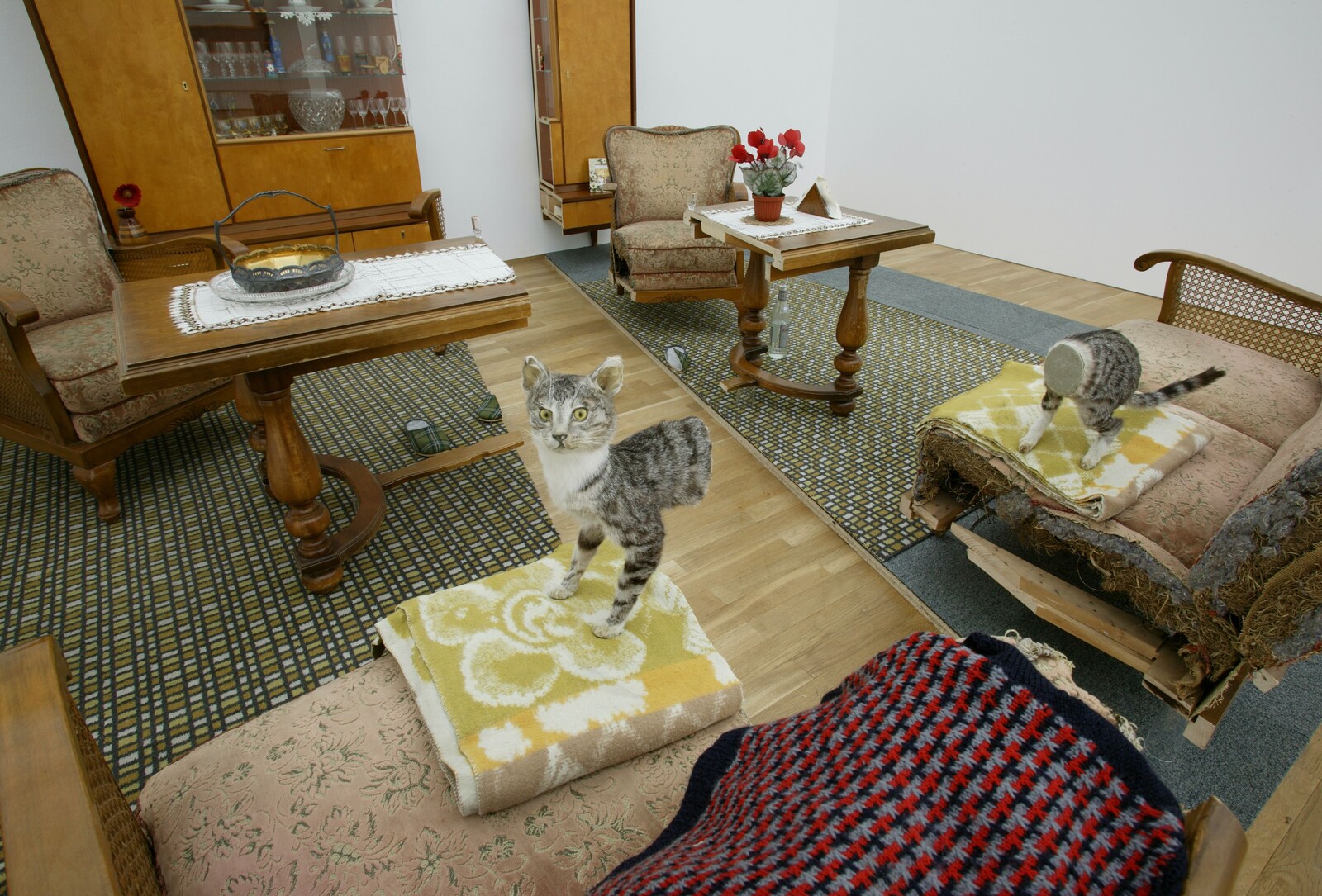The Consequences of the Post-1989/1990 Transformation for the Art World
November 8–9, 2024
Invalidenstrasse 50
10557 Berlin
Germany
Hours: Tuesday–Friday 10am–6pm,
Thursday 10am–8pm,
Saturday–Sunday 11am–6pm
hbf@smb.museum
Hamburger Bahnhof—Nationalgalerie der Gegenwart announces the comprehensive symposium “The West did not have to arrive in the East! The consequences of the Post-1989/1990 transformation for the art world.” Taking place on November 8 and 9, 2024, the admission-free symposium marks the 35th anniversary of the opening of the Berlin Wall. It explores the museological, economic, academic and artistic transformations within the artistic landscape in post-unification Germany.
The symposium coincides with the opening of the solo exhibition of Berlin-based artist Andrea Pichl, Values of Economy, which will be on view from November 8, 2024–May 4, 2025. Dealing with the economic transfer between West and East Germany before and after 1989, the exhibition reflects on the ways in which standardized and mass-produced architectural forms and objects can be inscribed with various social norms and history. It will be will be presented in dialogue with the museum’s collection of seminal works by Joseph Beuys.
Context
As Germany prepares to commemorate its 35th anniversary of reunification, the divergences that underlined the disparities between former East and West continue to persist. The opening of the Berlin Wall and the subsequent developments of 1989/1990 resulted in the transformation of almost all structures and areas of life in the former GDR; this was equally true for various sectors of the arts ecosystem. While artists gained new freedoms, they were simultaneously confronted with a new socio-economic reality. No longer able to rely on the security previously provided by the Verband Bildender Künstler (Union of Visual Artists), they suddenly found themselves forced to navigate the logic of the art market with its galleries, fairs and competition from international players. Concurrently, a sizeable portion of staff at art academies were replaced by new recruits from the former “West.” And within museums, the focus shifted towards closing the gaps in modern and post-modern art canons. Works that had been created in the GDR found themselves in storage, their makers often associated with the former system and its regime. Only a few contemporary artists from the region of the former GDR received institutional recognition through individual exhibitions and prizes or participation in biennials and other internationally oriented exhibitions. This symposium takes stock of these urgent post 1989/1990 realities, and addresses the ongoing complexities that resulted from them.
Content
During the two-day symposium, contemporary witnesses of the 1990s and cultural actors who are active today will come together to share their experiences, engage in a mediated exchange about continuities and ruptures, and reflect on how the post 1989/1990 transformations were experienced both individually and collectively. What was lost? Where was the integration of two systems productive? What influence do the persisting economic structures have? Is there an East German art scene today? And if so, what characterizes it? How is the institutional art scene in the East organized? And how visible are curators and artists with an Eastern biography in institutions? Departing from these questions, the symposium at Hamburger Bahnhof, whose building was located directly next to the Berlin Wall during the division of Germany, aims to create networks and formulate concrete wishes and ideas for the future.
Program
Friday, November 8 2024
2pm: Welcome Notes
Till Fellrath, Co-Director of Hamburger Bahnhof—Nationalgalerie der Gegenwart
Carsten Schneider, Minister of State to the Federal Chancellor and Federal Government Commissioner for Eastern Germany
2:30–4pm: Museums & Collections
Impulse Presentation: On the Dresden “Bilderstreit” (battle of images) and the consequences for the Albertinum
Hilke Wagner, Director of the Albertinum, Dresden State Art Collections
Panelists
Thomas Bauer-Friedrich, Director of the Moritzburg Art Museum, Halle (Saale)
Gabriele Knapstein, Deputy Director and Head of Collection of Hamburger Bahnhof—Nationalgalerie der Gegenwart, Berlin
4:30–6pm: Art Market
Impulse Presentation: “Outsiders—Frontrunners” On the founding and development of the ASPN gallery in Leipzig since 2005
Arne Linde, Gallery Owner and Founder of Galerie ASPN, Leipzig
Panelists
Elke Hannemann, Senior Director (Leipzig), Galerie EIGEN+ART, Berlin/Leipzig
Friedrich Loock, LOOCK Gallery (1988-2008 Galerie Wohnmachine), Berlin
Saturday, November 9, 2024
11:30am–1pm: Art Academies
Impulse Presentation: “Become annoying competition?” The situation of art academies in the eastern part of Berlin after 1989
Angelika Richter, Rector, Weißensee Academy of Art, Berlin
Panelists
Dieter Daniels, Professor of Art History and Media Theory at the Academy of Visual Arts, Leipzig
Ricarda Roggan, Professor of Photography at the ABK, Stuttgart
2–3:30pm: Artistic Positions
Impulse Presentation: On the artistic practice of Andrea Pichl, Via Lewandowsky and Pham, Minh Duc
Sven Beckstette, Curator at Hamburger Bahnhof—Nationalgalerie der Gegenwart, Berlin
Panelists
Andrea Pichl, Visual Artist, Berlin
Via Lewandowsky, Visual Artist, Berlin
Pham Minh Duc, Visual Artist and Performer, Berlin
4–5:30pm: Funding Structures
Impulse Presentation: On the foundation of the Gallery for Contemporary Art Leipzig
Franciska Zólyom, Director of the Gallery for Contemporary Art Leipzig
Panelists
Hildtrud Ebert, Art Historian, Berlin
Gitte Zschoch, Secretary General of the ifa—Institut für Auslandsbeziehungen
The symposium was conceived by Till Fellrath, Gabriele Knapstein and Sven Beckstette, Hamburger Bahnhof—Nationalgalerie der Gegenwart, with art historian and journalist Sarah Alberti.
Under the patronage of the Minister of State to the Federal Chancellor and Federal Government Commissioner for Eastern Germany Carsten Schneider, and funded by the Federal Government Commissioner for the New Federal State and The Federal Agency for Civic Education.
The symposium is public and can be attended for free without registration. The event will be held in German; simultaneous translation into English will be provided on site. The symposium will be moderated by Tanja Samrotzki.
